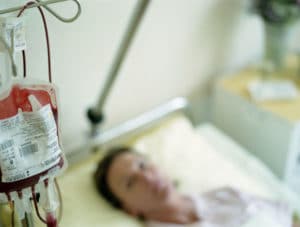
A New Jersey Onglyza lawsuit may be an option for patients who have suffered severe complications after taking the drug. The diabetes drug Onglyza has been linked to pancreatitis, pancreatic cancer, thyroid cancer, heart failure, and even death and is also under scrutiny following safety warnings issued by the U.S. Food and Drug Administration (FDA). Affected parties may be eligible to seek compensation for damages with the help of a New Jersey Onglyza attorney.
For more information, contact Attorney Group for New Jersey. We offer free, confidential, no obligation consultations. We can help answer your questions, and if you choose to pursue a case we can connect you with an affiliated New Jersey Onglyza lawsuit attorney who can assist you throughout the legal process.
What Is Type 2 Diabetes?
Type 2 diabetes is more common than type 1 and stems from insulin resistance, according to the American Diabetes Association. Essentially, the body struggles to produce enough insulin to keep a person’s blood sugar in stable ranges. Long-term effects of type 2 diabetes include heart, nerve or kidney damage, and some people can keep their diabetes in check with a balance of exercise and healthy eating. Medication, such as Onglyza, is also a factor in many treatment approaches.
Medications Used in Type 2 Diabetes Treatment
As the American Diabetes Association explains, quite a few medications can be used in Type 2 diabetes treatment. No matter the type of medication, the goal is to reduce blood sugar levels. Many patients should expect side effects with their medication. For example, vomiting is one possible consequence of taking meglitinides, and yeast and urinary tract infections can stem from taking SGLT2 inhibitors.
Onglyza, also known as saxagliptin, is a DPP-4 inhibitor. Many doctors will prescribe this drug due to the fact that it lowers cholesterol in some people and typically has no influence on weight gain. Other DPP-4 inhibitors include Tradjenta (linagliptin) and Januvia (sitagliptin). These inhibitors target GLP-1, a compound that decreases glucose levels. However, GLP-1 does not last long, so drugs such as Onglyza help extend its lifespan, thereby boosting the effectiveness of GLP-1.
The U.S. Food and Drug Administration (FDA) approved Onglyza in 2009, explaining that the pill keeps blood sugar in check for type 2 diabetes—in concert with exercise and healthful eating, of course. Approval occurred based on clinical studies that did not examine the potential effect of the drug on patients’ hearts. However, the FDA has requested additional research to be conducted on Onglyza, and has stated that all diabetes drugs undergo clinical trials with heart issues in mind.
Onglyza Side Effects
The official website for U.S. consumers of Onglyza states that common side effects include headaches, upper respiratory tract infections and urinary tract infections. Additionally, users of the drug can find warnings on the site for serious side effects. Among the most serious is pancreatitis, which can result in a person’s death. Fluid retention, low blood sugar and allergic reactions such as skin flaking are also possible.
In 2013, the New England Journal of Medicine published early results from a study that indicated a link between heart failure and Onglyza. In 2014, citing these findings, the FDA asked the manufacturer of Onglyza to further investigate heart failure risks with Onglyza.
Onglyza Lawsuits Filed
Other drugs in the same class as Onglyza, like Januvia, were associated with an increased risk of pancreatic cancer, and people diagnosed with the disease filed hundreds of lawsuits against the manufacturers. Furthermore, in October 2015, a lawsuit was filed alleging a link between Onglyza and the heart-related death of a woman. The plaintiff said that her mother took Onglyza for three years, leading to two hospitalizations, and eventually, her death.
How a New Jersey Onglyza Lawsuit Can Help

Drug makers have a duty to provide safe products. If there are risks of harm associated with their products, they also must provide adequate warnings. If a drug maker fails to fulfill this duty, it could be held liable in lawsuits for injuries that may result.
People injured by bad drugs may be eligible to recover money for:
- Medical Expenses
- Lost Wages
- Pain and Suffering
The families of those who have died may be eligible to recover money for funeral expenses and the pain that comes with losing a loved one.
The Time You Have to Pursue a Claim is Limited. Contact Us Today.
For more information, contact Attorney Group for New Jersey. You can fill out the form on this page or contact us by phone or email.
After you contact us, an attorney will follow up to answer questions that you might have. There is no cost or obligation to speak with us, and any information you provide will be kept confidential.
Please note that the law limits the time you have to pursue a claim or file a lawsuit for an injury. If you think you have a case, you should not delay taking action.





